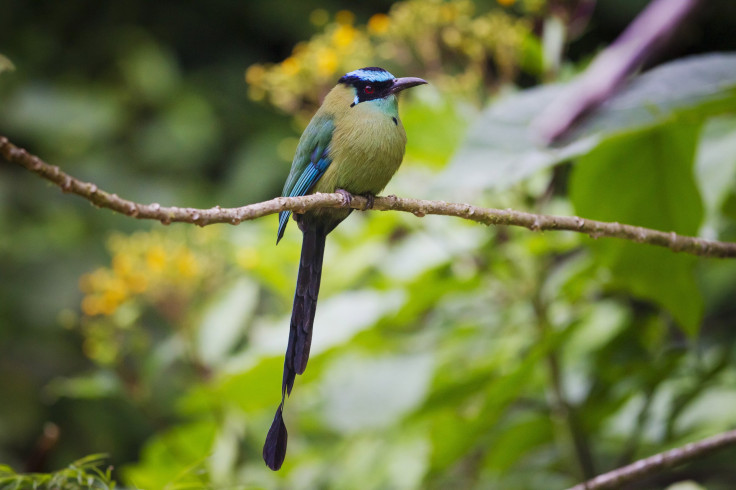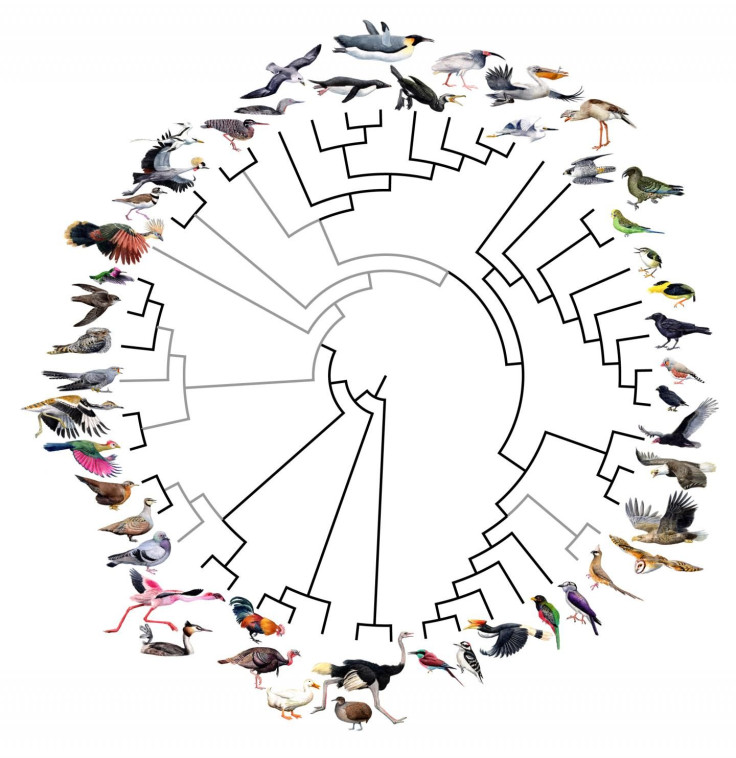Rapid Bird Evolution After Dinosaurs Disappeared, Finds New Genetic Study

In a new genetic study, scientists have claimed to produce the most comprehensive family tree of birds, which reveals that these winged vertebrates evolved rapidly after dinosaurs became extinct about 66 million years ago.
As part of the study, researchers assembled and studied the genomes of 48 bird species that represent all major branches of modern birds. The researchers also claim it to be the largest genomic study ever conducted across a single vertebrate class.
“The popular view until now has been that the extraordinary diversity of birds began during the dinosaur age but we found little support for this," Simon Ho, associate professor at the University of Sydney and lead author of the study, said in a statement.

Ho used genome data and fossil evidence -- a technique known as “molecular clock” -- to estimate birds' evolutionary timescales, and found that some of the first lineages of modern birds appeared about 100 million years ago, while almost all of the modern groups of birds evolved within less than 10 million years, just after dinosaurs went extinct.
“The team was able to work out the relationships among the major groups of modern birds, showing that our previous understanding of birds had been clouded by the appearance of similar traits and habits in distantly related groups,” Ho said.
The study, published in the journal Science on Friday, also found that the ancestor of most present-day land birds was probably an apex predator, which eventually evolved into raptors, eagles, owls and falcons in rapid succession before giving rise to land birds, such as songbirds and woodpeckers.
“With the demise of the dinosaurs, birds and mammals were able to become more diverse and to occupy all of the niches that had previously been dominated by dinosaurs,” Ho said.
© Copyright IBTimes 2024. All rights reserved.






















